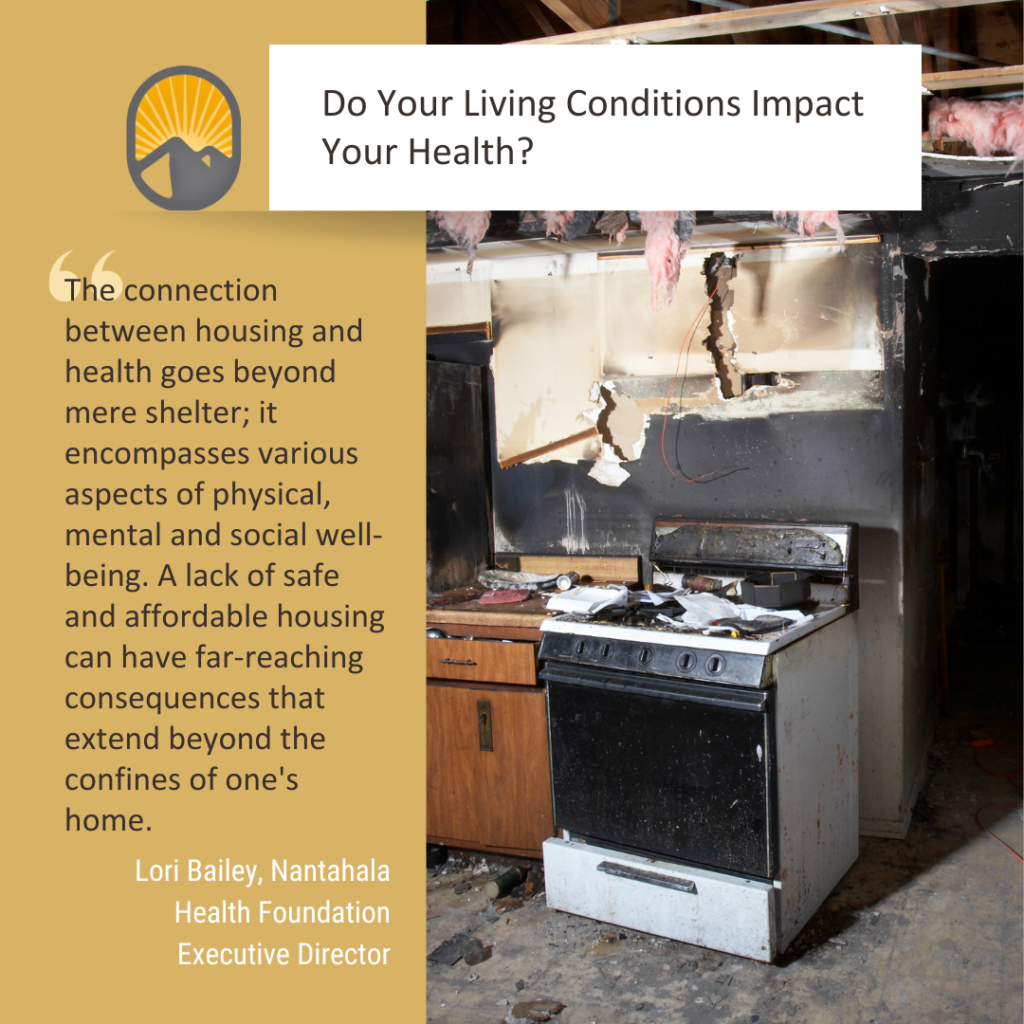This is the first in a five-part series being published in newspapers throughout Western North Carolina. Our aim with this series is to expand the public’s understanding of social drivers of health and the struggles individuals face when they are unable to modify these factors.
We are grateful for the media’s support and for helping us share this informational series.

Safe and affordable housing plays a pivotal role in shaping individual and community health outcomes, making it one of the most fundamental social determinants of health.
“The connection between housing and health goes beyond mere shelter; it encompasses various aspects of physical, mental, and social well-being,” said Lori Bailey, executive director of Nantahala Health Foundation, which has funded housing rehab projects in Jackson County through Mountain Projects since 2019. “A lack of safe and affordable housing can have far-reaching consequences that extend beyond the confines of one’s home.”
Primarily, housing serves as the cornerstone of physical health. Inadequate living conditions, such as overcrowding, poor ventilation, and exposure to environmental hazards, can lead to a host of health problems, including respiratory illnesses, allergies and lead poisoning. Moreover, unstable housing situations contribute to chronic stress, which has been linked to increased risks of cardiovascular diseases and compromised immune systems.
“Equally important is the role of housing in mental health,” Bailey said. “The stability and security that safe housing provides contributes significantly to reducing stress and anxiety levels. Without a stable home, individuals may experience heightened stress due to concerns about eviction, homelessness, or substandard living conditions. This chronic stress can contribute to mental health disorders, including depression and anxiety.”
Adequate housing, on the other hand, provides a secure foundation for maintaining good physical health by offering protection from environmental risks and promoting proper hygiene, she continued.
“Having a safe and consistent living space creates a sense of stability that supports mental well-being,” said Bailey.
Furthermore, she said, safe and affordable housing is intertwined with social health and community cohesion. Access to decent housing often determines the neighborhood one resides in, which in turn influences access to quality education, job opportunities and social services. People living in marginalized communities with limited housing options are more likely to experience barriers to upward mobility, perpetuating cycles of poverty and reduced social cohesion. In contrast, affordable housing policies can promote inclusive communities that foster social interaction, support networks, and shared resources.
Safe and affordable housing stands as a critical social determinant of health due to its multifaceted impact on physical, mental, and social well-being, said Bailey.
“Beyond providing shelter, housing plays a vital role in preventing health risks, reducing stress, and promoting a strong sense of community,” she said. “Recognizing housing as a fundamental human need and prioritizing policies that ensure safe and affordable housing for all can have profound positive effects on overall population health and well-being.”
